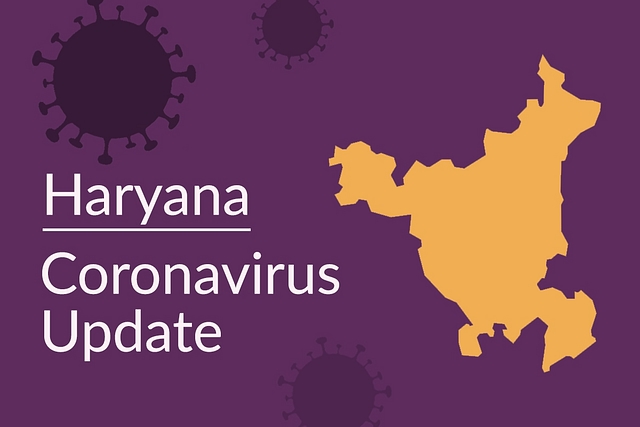
What Makes The ‘Haryana Model’ Of Covid-19 Management Commendable?
This is how Haryana put up a strong fight against Covid-19.
With 4,448 Covid-19 cases and only 28 fatalities as of 8 June, Haryana has emerged as one of the strong performers among states in India with respect to management of the pandemic.
As of date, Haryana has only one death per million population, a stark contrast to neighbouring Delhi, which currently has around 34 deaths per million population.
Delhi’s death count per million population is the highest for any state in the country thus far and is significantly higher than India’s present average of five deaths per million population.
The statistics on testing also tell a positive story for Haryana. The state has conducted a total of 145,722 tests till date, which translates into approximately 5,167 tests per million population. This is substantially higher than the India average of 3,831 tests per million population.
Delhi has conducted a larger number of tests per million population compared to Haryana. However, its test positivity percentage is also significantly higher.
In fact, it is the second highest in the country, after Maharashtra. A higher test positivity rate can be indicative of the infection spreading faster in the state.
So, what has allowed Haryana to put up a strong fight against Covid-19?
During the early stages of the pandemic in India, Haryana initiated testing for people who had entered the state from countries like Indonesia, Nepal, Thailand, Bangladesh and the Maldives, among others.
The state has also made good use of the three-layered health infrastructure being put in place for the management of the disease in India — Covid care centres (CCCs) for patients with mild or very mild symptoms, Covid health centres for patients with moderate clinical symptoms and Covid hospitals for treating patients with a severe or critical manifestation of the disease.
Contacts of all foreign returnees in Haryana were traced and housed in CCCs till their test results were confirmed. If they tested positive, they were moved to a dedicated Covid hospital.
In district Nuh, for instance, patients with mild and moderate symptoms of Covid-19 are admitted to the district hospital, while those who are in the high-risk category (eg, the elderly, those with co-morbid conditions like diabetes etc) or have severe symptoms are shifted to Nalhar Medical College.
Putting in place a clear pathway for the movement of Covid-19 patients through various categories of health facilities in the state helps to streamline the management of resources as well as initiate treatment in an efficient and timely manner.
Additionally, strong monitoring mechanisms have been put in place at the state and district levels. The monitoring dashboard of the State Health Department, for instance, provides a comprehensive and detailed, district-level overview of the latest status of Covid-19 cases in the Haryana.
Considerable emphasis has also been laid on the management of containment and buffer zones with a particular focus on restricting the entry and exit of people from these zones through the effective deployment of the police and frontline health workers like ASHAs and auxiliary nurse midwives.
With respect to screening and testing, all patients who come in contact with the health system for unrelated surgeries are also being tested for Covid-19. For the purpose of screening high-risk contacts of patients, the TueNat test is being used, thus helping to save time and reduce the burden on the state laboratory.
Social stigma is a key barrier to tackling Covid-19. Print and electronic media has been used extensively in Haryana for creating awareness about the disease as well as dispelling any myths and misconceptions.
In districts like Nuh, the community radio is used for encouraging residents to practise social distancing as well as adopt positive public health behaviours such as wearing face covers and maintaining hand hygiene at all times.
With the easing of the lockdown and gradual opening up of state borders, Haryana is now entering perhaps one of the more challenging phases in its efforts to counter the Covid-19 outbreak and, most importantly, maintain the extremely low fatality rates observed till date.
What should go in the state’s favour at this challenging time is a solid and by now well-practised model of aggressive tracing, isolating, testing and treating Covid-19 patients.
Disclaimer: Views expressed are personal.
Acknowledgment: I am grateful for the inputs of the Nuh district administration and health team for this article.